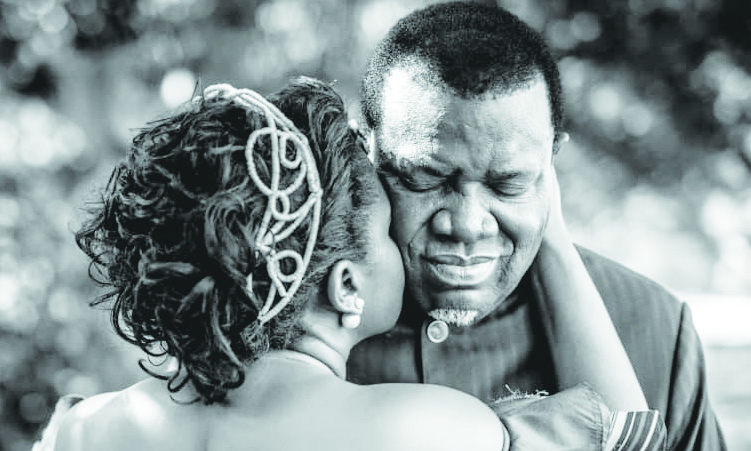GENEVA – The international Red Cross saw US military intelligence officers mistreating prisoners under interrogation at Abu Ghraib prison and heard coalition estimates that up to 90 per cent of Iraqi detainees were arrested by mistake, according to a report by the agency disclosed yesterday.
US President George W. Bush said the mistreatment “was the wrongdoing of a few,” but the report by the International Committee of the Red Cross backs up with detail the neutral agency’s contention that US prisoner abuse was broad and part of a system, “not individual acts.” “ICRC delegates directly witnessed and documented a variety of methods used to secure the co-operation of the persons deprived of their liberty with their interrogators,” said the confidential report.The delegates saw how detainees were kept “completely naked in totally empty concrete cells and in total darkness,” the report said.”Upon witnessing such cases, the ICRC interrupted its visits and requested an explanation from the authorities,” the report said.”The military intelligence officer in charge of the interrogation explained that this practice was ‘part of the process.”‘ This apparently meant that detainees were progressively given clothing, bedding, lighting and other items in exchange for co-operation, it said.It said it found evidence supporting prisoners’ allegations of other forms of abuse during arrest, initial detention and interrogation.Among the evidence were burns, bruises and other injuries consistent with the abuse prisoners alleged, it said.The 24-page document, confirmed by the ICRC as authentic after it was published by The Wall Street Journal yesterday, said the abuses were primarily during the interrogation stage by military intelligence.Once the detainees were moved to regular prison facilities the abuses typically stopped, it said.The report cites abuses – some “tantamount to torture” – including brutality, hooding, humiliation and threats of “imminent execution.”These methods of physical and psychological coercion were used by the military intelligence in a systematic way to gain confessions and extract information and other forms of co-operation from person who had been arrested in connection with suspected security offences or deemed to have an ‘intelligence value.”‘ The agency said arrests allegedly tended to follow a pattern.”Arresting authorities entered houses usually after dark, breaking down doors, waking up residents roughly, yelling orders, forcing family members into one room under military guard while searching the rest of the house and further breaking doors, cabinets and other property,” the report said.”Sometimes they arrested all adult males present in a house, including elderly, handicapped or sick people,” it said.It said some coalition military intelligence officers estimated “between 70 per cent and 90 per cent of the persons deprived of their liberty in Iraq had been arrested by mistake.They also attributed the brutality of some arrests to the lack of proper supervision of battle group units.”Pierre Kraehenbuehl, ICRC director of operations, said last Friday that the report had been given to US officials last February, but that it only summarised what the agency had been telling US officials in detail between March and November 2003 “either in direct face-to-face conversations or in written interventions.”Kraehenbuehl said the abuse of prisoners represented more than isolated acts, and that the problems were not limited to the Abu Ghraib prison.”We were dealing here with a broad pattern, not individual acts.There was a pattern and a system,” he said, declining to give further details.- Nampa-AP”ICRC delegates directly witnessed and documented a variety of methods used to secure the co-operation of the persons deprived of their liberty with their interrogators,” said the confidential report.The delegates saw how detainees were kept “completely naked in totally empty concrete cells and in total darkness,” the report said.”Upon witnessing such cases, the ICRC interrupted its visits and requested an explanation from the authorities,” the report said.”The military intelligence officer in charge of the interrogation explained that this practice was ‘part of the process.”‘ This apparently meant that detainees were progressively given clothing, bedding, lighting and other items in exchange for co-operation, it said.It said it found evidence supporting prisoners’ allegations of other forms of abuse during arrest, initial detention and interrogation.Among the evidence were burns, bruises and other injuries consistent with the abuse prisoners alleged, it said.The 24-page document, confirmed by the ICRC as authentic after it was published by The Wall Street Journal yesterday, said the abuses were primarily during the interrogation stage by military intelligence.Once the detainees were moved to regular prison facilities the abuses typically stopped, it said.The report cites abuses – some “tantamount to torture” – including brutality, hooding, humiliation and threats of “imminent execution.”These methods of physical and psychological coercion were used by the military intelligence in a systematic way to gain confessions and extract information and other forms of co-operation from person who had been arrested in connection with suspected security offences or deemed to have an ‘intelligence value.”‘ The agency said arrests allegedly tended to follow a pattern.”Arresting authorities entered houses usually after dark, breaking down doors, waking up residents roughly, yelling orders, forcing family members into one room under military guard while searching the rest of the house and further breaking doors, cabinets and other property,” the report said.”Sometimes they arrested all adult males present in a house, including elderly, handicapped or sick people,” it said.It said some coalition military intelligence officers estimated “between 70 per cent and 90 per cent of the persons deprived of their liberty in Iraq had been arrested by mistake.They also attributed the brutality of some arrests to the lack of proper supervision of battle group units.”Pierre Kraehenbuehl, ICRC director of operations, said last Friday that the report had been given to US officials last February, but that it only summarised what the agency had been telling US officials in detail between March and November 2003 “either in direct face-to-face conversations or in written interventions.”Kraehenbuehl said the abuse of prisoners represented more than isolated acts, and that the problems were not limited to the Abu Ghraib prison.”We were dealing here with a broad pattern, not individual acts.There was a pattern and a system,” he said, declining to give further details.- Nampa-AP
Stay informed with The Namibian – your source for credible journalism. Get in-depth reporting and opinions for
only N$85 a month. Invest in journalism, invest in democracy –
Subscribe Now!






